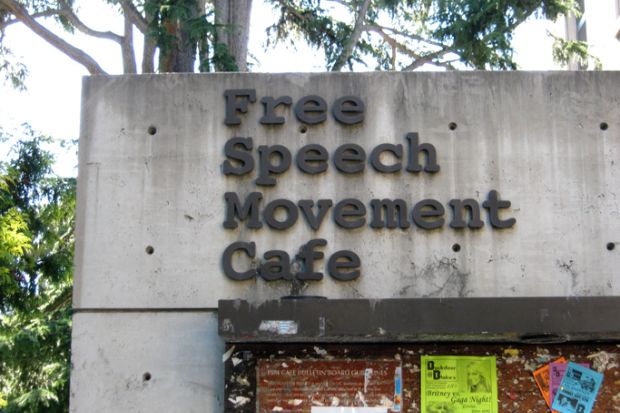Though most attacks on higher education communities occur in authoritarian countries, Western scholars would do well to look also at what is happening closer to home.
Free to Think 2021, the annual report of the Scholars at Risk (SAR) Academic Freedom Monitoring Project, lists 332 such attacks in 65 countries. These include 110 cases of “killings, violence [and] disappearance” and 101 cases of wrongful imprisonment, along with prosecution, “loss of position” and “travel restrictions”, even though such documented examples constitute only “a fraction of attacks on higher education that have occurred over the past year”.
It is probably unsurprising that countries such as Afghanistan, Brazil, China, Myanmar, Turkey and Zimbabwe are well represented, but the report also flags up cases of intimidation and harassment in places far less well known for human rights abuses.
The office of Andrea Boudouvis, rector of the National Technical University of Athens, was vandalised by “a group of ‘hooded’ individuals with hammers, crowbars, and paint” protesting against “a plan to renovate a historic building on campus – one that had been used as an open meeting space for students and Athenians – into a research and conference centre”. In France, “antisemitic and misogynistic images and messaging were used to hijack a virtual conference on feminist movements hosted by the University of Toulouse-Jean Jaurès”. In the Netherlands, meanwhile, two scholars reported being intimidated by “a right-wing online activist group…committed to breaking up the ‘left hegemony’ by exposing ‘leftist’ members of society and ‘mapping left-wing networks’”.
Perhaps even more striking, the report, published on 9 December, includes 12 examples of “attacks on higher education communities” that took place in the US between 1 September 2020 and 31 August 2021.
in Idaho, for example, “a law was passed that explicitly identified critical race theory as a threat to fundamental rights such as freedom of inquiry and expression, and respect for the dignity of others”. Legislation proposed in Louisiana, New Hampshire and Rhode Island went even further to “ban the teaching of ‘divisive concepts’, such as the idea that systemic racism exists”. SAR, therefore, felt the need to “call on US lawmakers and other political actors to refrain from efforts to dictate the content of teaching or research, including through legislative, executive, or private actions”.
Free to Think 2021 also describes instances of unfair treatment that individual academics in the US, as in so many other countries, have faced.
A tenured professor at Linfield University in Oregon was “summarily terminated after he publicly advocated on behalf of students and faculty who complained about alleged sexual abuse by members of the university’s board of trustees”. A professor at Collin College in Texas was also fired “in apparent retaliation for expression critical of the college’s Covid-19 response”.
After setting out this catalogue of abuses, SAR offers a range of recommendations to “states, higher education communities, and civil society”. At their heart, however, is unflinching “support for the principles that critical discourse is not disloyalty, that ideas are not crimes, and that everyone must be free to think, question, and share their ideas”, whether across the globe or in the next street.
Register to continue
Why register?
- Registration is free and only takes a moment
- Once registered, you can read 3 articles a month
- Sign up for our newsletter
Subscribe
Or subscribe for unlimited access to:
- Unlimited access to news, views, insights & reviews
- Digital editions
- Digital access to THE’s university and college rankings analysis
Already registered or a current subscriber? Login








